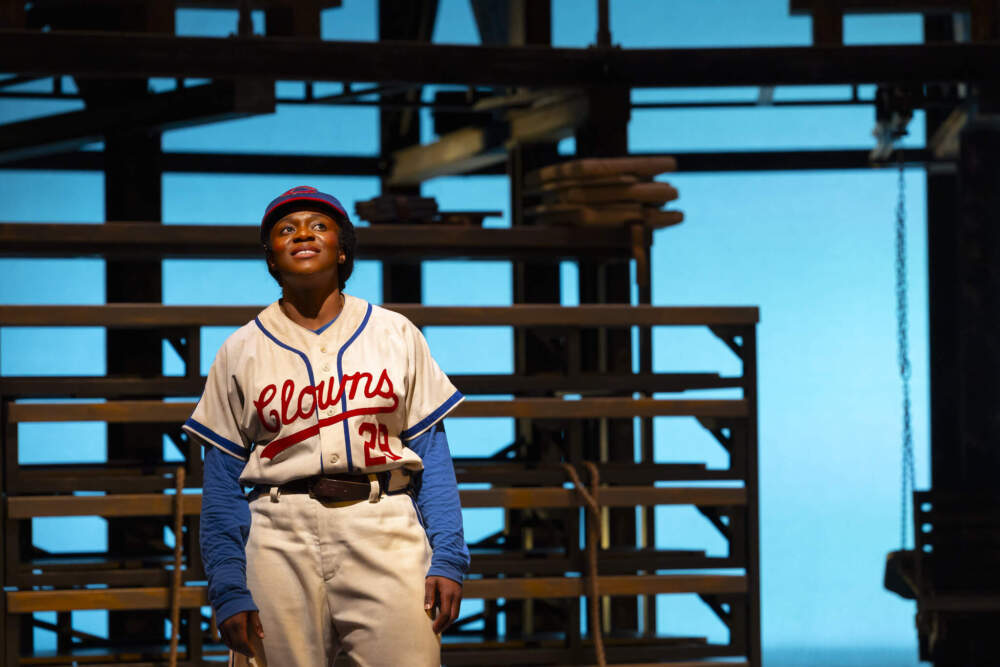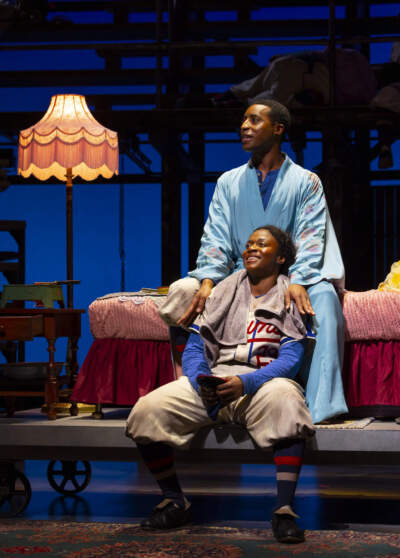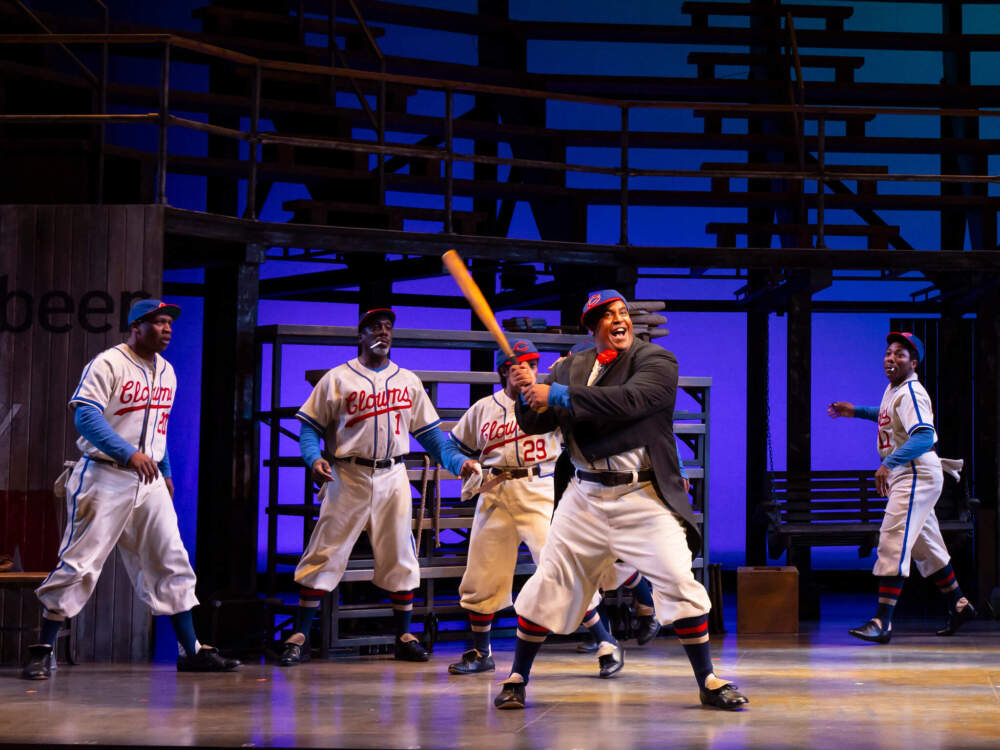Advertisement
Review
The Huntington's 'Toni Stone' is a home run

To reach for and achieve a dream is a real gift.
Marcenia Lyle “Toni” Stone, born in 1921, toiled and stretched for her dream of playing baseball — a radical ambition in that era — and later became the first woman to join a professional men’s baseball team. She played in the Negro Leagues replacing Hank Aaron on second base. Playwright Lydia Diamond takes audiences on a thrilling voyage through this trailblazer’s remarkable life in “Toni Stone” at The Huntington Theatre through June 16.
It’s no secret that the odds of becoming a professional athlete are slim. But nothing, not the odds nor the naysayers could deter Stone — powerfully portrayed by Jennifer Mogbock onstage — from her love of the game and her aim to get on and stay on the field. The riveting story moves back and forth through time: Stone talks about growing up and being pushed to pursue more acceptable paths, the people who believed in her talents and some rough patches along the way.

Mogbock’s Stone narrates the action in her Indianapolis Clowns uniform before a set of risers. There’s signage advertising Arrow Beer, cigars and the like below a set of towering lights on this field, designed by Collette Pollard. Stone speaks quickly, like the pace of the game, as she tells the story of her life and the talented ensemble members portray uniform-clad players, team owners, parents, a priest and more.
Given Stone’s race and gender, in less capable hands, her story could quickly become a tale overshadowed by all the -isms that plague the world. But Diamond, also the show’s discerning director, crafted a bountiful offering — with the help of a skilled creative team — where meaning and core messages are expertly threaded through dialogue, movement and staging in thoughtful ways. For instance, the music, sound and choreography for a jubilant-at-first dance become distorted and exaggerated, signaling the ire and fatigue the team had for the minstrel-like performances demanded of them. It was not enough that the team could play ball, they also had to provide entertainment through dancing and tricks at their games. “That’s the reach we have to do to get to the thing we want to do,” Stone says.
In another example, racist onlookers are illuminated by stadium lights, but their faces remain hidden behind hats as they hurl verbal onslaughts.

The efforts of the creative team further elevate the production: Ebony Williams’ magnificent choreography of simulated baseball and multiple dance numbers; costumer Mara Blumenfeld’s well-made, period-appropriate uniforms; Brian J. Lilienthal's realistic and clever lighting design; sound designer Aubrey Dube and Lucas Clopton’s music, from the snap of the ball hitting the bat to apropos background tunes. The elements all work smoothly in concert to provide a robust world full of the sights, sounds and shifting movement of baseball.
Still, throughout the show, there’s a prevailing exuberance for the game, laughter, camaraderie (and sometimes a little hate) between the teammates made up of a fantastic cast. There’s also a budding romance between Stone and the refined Jamaican suitor Aurelious Alberga (who is just “Alberga” in the show, portrayed by an excellent Jonathan Kitt) whom she later marries. A friendship between Stone and Millie (a wonderful Stanley Andrew Jackson) was also meaningful. Millie works at a brothel, so both she and Stone are outsiders due to their career choices. Despite their differences, the two nurture and teach one another. There are tender moments between them. Millie hot combs Stone’s kitchen at the nape of her neck and provides a place to rest and be herself between games.
Advertisement
Diamond is a celebrated playwright who wrote the lauded “Stick Fly” about a wealthy African American family on Martha’s Vineyard and “The Bluest Eye,” an adaptation of Toni Morrison’s novel of the same name, among others. In the play program, Diamond — who was commissioned to write “Toni Stone” — admitted she writes slowly. But it seems the time she took to weave this tale was well-spent. To get started on the narrative, she read Martha Ackmann’s book “Curveball: The Remarkable Story of Toni Stone, the First Woman to Play Professional Baseball in the Negro League,” and delved into research mode. She sought out coaches, athletes and baseball fans to teach her the psychology of the game.

The characters, even those without a lot of dialogue, are well-defined. There’s the edgy, expletive-using Woody (an expressive Al’Jaleel McGhee), whose disposition kept him from getting into the recently integrated major leagues; there’s Elzie, a ladies’ man who is harboring a secret (a very talented Anthony T. Goss who starred in last year’s stellar production of “Seven Guitars”); and the brainy Spec (a great Omar Robinson), who shares bits of wisdom by W.E.B. Dubois or the etymology of common words with painful origins whether or not folks were listening.
Mogbock’s baseball-stat-spouting Stone is dynamic. Through tales from the past and present, she succeeds in sharing her love and respect for the game, the hard work — both mental and physical — it takes to achieve her dream of playing professional baseball, and the weight of it all.
Early in the show, Stone says that the journey she takes audiences on is between the weight of the ball and the reach.
It’s in that space where Stone’s dreams were born and chased after. And whenever Stone was told her dreams were too big, especially for a woman, she reached for it anyway.
The Huntington Theatre’s production of “Toni Stone” runs through June 16.
